The Low Carb Diet for Seniors
As we age, maintaining optimal health and well-being becomes increasingly important. One way to support this is through nutrition, specifically a diet low in carbs.
This diet can offer several health benefits, including improved physical and mental health, particularly for seniors. Understanding the nuances of maintaining peak health becomes a key focus as we gracefully journey into our golden years. As we age, the importance of preserving not just our physical, but also our mental well-being, takes center stage, turning our attention towards viable solutions that can help us sustain a vibrant, healthy lifestyle. One such solution lies in the power of proper nutrition, a vital weapon in our fight against the inevitable march of time. Specifically, adopting a diet that's notably low in carbohydrates, often referred to as a low-carb diet, emerges as a strong ally in this quest for optimal health. This diet strategy is not just a fleeting trend but a well-researched, scientifically backed approach to nutrition that caters to the unique needs of seniors.

A low-carb diet helps regulate blood sugar levels, supports heart health, aids in weight management, and prevents a host of lifestyle diseases, thus enhancing the overall quality of life. But that's not all.
The benefits of a low-carb diet extend beyond the physical, delving into the realm of mental health. It's been noted that such a diet can improve mental clarity, combat mood swings, and even slow down cognitive decline, offering a significant advantage especially for seniors who are often at a higher risk for mental health issues. In summary, as we navigate the complex journey of aging, the importance of maintaining optimal health is amplified, and a low-carb diet can provide an effective strategy to achieve this. Embracing such a diet, therefore, becomes an essential part of our toolkit for healthy and happy aging, promising improved physical and mental health, and ultimately, a better, more fulfilling life in our sunset years.
What Happens to Our Bodies When We Age?
As we grow older, our metabolism slows down, we lose muscle mass and are at a higher risk for cardiovascular diseases. These changes can have significant impact on our health, but a well-managed diet can help mitigate these effects.
As we journey through life, maturing from the vigor of youth to the wisdom of age, our bodies undergo a series of inevitable changes. One such transformation is the gradual deceleration of our metabolism. This means that our bodies become less efficient at converting the food we consume into energy, which can lead to weight gain and a host of associated health issues. Additionally, we start losing muscle mass, a process known as sarcopenia, which can begin as early as our 30s. This decline in muscle strength not only impacts our physical abilities and stamina, but can also profoundly affect our overall health and quality of life. Another health concern that escalates as we age is the heightened risk of cardiovascular diseases. These include conditions such as heart disease, stroke, and high blood pressure, which are among the leading causes of death globally. The reality of these changes can be daunting, as they can significantly alter the landscape of our health, presenting new challenges that we must learn to navigate.

However, it's not all doom and gloom. There's a silver lining in the form of a well-managed diet.
By embracing a balanced, nutritious diet, we can offset some of these effects and provide our bodies with the fuel they need to function optimally. This means consuming foods rich in vitamins, minerals, and antioxidants, and cutting back on processed foods, saturated fats, and added sugars. These dietary habits can boost our metabolism, aid in preserving muscle mass, and help maintain a healthy cardiovascular system. Moreover, a balanced diet can also enhance our immune system, improve our digestive health, and even boost our mood and cognitive functions. So, while the physical changes that come with aging are largely unavoidable, they are not insurmountable. With a well-managed diet, regular exercise, and a proactive approach to our health, we can age gracefully and continue to thrive, proving that age is indeed just a number.
The Low Carb Diet: Improving Physical & Mental Health
A low carb diet can help seniors maintain their health by improving their nutritional metabolism. It is a diet that focuses on proteins and fats, while limiting the intake of carbohydrates.
Embracing a low carb diet can significantly bolster seniors' health, proving instrumental in enhancing their nutritional metabolism and overall wellbeing. This diet regimen is unique, focusing primarily on the consumption of proteins and fats, which are vital for maintaining key bodily functions and providing the necessary energy for day-to-day activities. This diet strategy intentionally restricts the intake of carbohydrates, which often lead to unhealthy weight gain and stability issues in seniors, if consumed in excess. By adhering to a low carb diet, seniors can potentially mitigate the risk of obesity and related health complications. It can aid in maintaining a healthy weight and promoting better mobility, contributing to an improved quality of life. Moreover, such a diet can contribute to better heart health and reduce the risk of metabolic disorders, such as diabetes, by managing blood sugar levels.

Moreover, a low-carb diet can also influence mental health positively, potentially reducing the risk of cognitive decline in seniors. It encourages the consumption of nutrient-rich food, which not only nourishes the body but also fuels the brain, leading to enhanced memory and cognitive functions.
In addition, it offers seniors the flexibility to experiment with a variety of foods within the proteins and fats spectrum, making it a versatile and enjoyable dietary regimen. This adaptability ensures that seniors do not feel restricted in their food choices, making the diet easier to maintain in the long term. In conclusion, a low carb diet not only improves seniors' nutritional metabolism but also provides a myriad of other health benefits. It is a diet that encourages a healthy lifestyle, promotes longevity, and enriches the golden years of seniors' lives with vitality and vigor.
Benefits of a Keto Diet for Seniors
A ketogenic diet, which is a more restrictive version of a low carb diet, can provide seniors with several health benefits. These include improved heart health, blood sugar control, improved cognitive function, and prevention of nutrient deficiencies.
Delving into the world of dietary practices, the ketogenic diet emerges as a powerhouse, especially for seniors. This diet, often viewed as a more stringent modification of the traditional low-carb diet, holds the potential to unlock a plethora of health benefits that are integral to the golden years of life. The dietary plan, rich in fats and low in carbs, drives the body mechanism into a state called 'ketosis', where fats, instead of carbohydrates, become the primary energy source. This shift in metabolic function, when embraced consistently, can lead to significant improvements in heart health. The ketogenic diet can act as a catalyst in maintaining a robust cardiovascular system by regulating cholesterol and blood pressure levels, two key factors contributing to heart health. Furthermore, it offers an effective strategy to control blood sugar levels. By limiting carbohydrate intake, the ketogenic diet keeps the blood sugar levels in check, which can be particularly beneficial for seniors prone to or living with diabetes.

Another remarkable benefit of this diet is its ability to enhance cognitive function. Seniors often face cognitive decline due to aging, but this diet, rich in healthy fats, provides essential nutrients to the brain, thus promoting mental clarity and enhancing memory.
Lastly, the diet can aid in preventing nutrient deficiencies that often occur in old age. It encourages the consumption of nutrient-dense foods like leafy greens, avocados, and lean meats, ensuring a balanced intake of essential vitamins and minerals. In conclusion, the ketogenic diet, with its spectrum of health benefits, can be a valuable tool in improving and maintaining the overall health of seniors. It promises not just a healthier heart and controlled blood sugar, but also improved cognitive functions and a nutrient-rich dietary intake. It's not just a diet, but a lifestyle change that fosters a healthier and more fulfilling life for seniors.
How to Do a Low Carb Diet After 60
Its crucial to choose the right food sources when following a low carb diet. Focusing on whole foods, such as lean proteins, healthy fats, and low carb vegetables, can ensure a well-rounded and nutritious diet.
Indeed, it is absolutely crucial to make mindful choices about your food sources when you're committed to following a low carb diet. It's not just about cutting down on carbs, but it's also about making sure that the food you eat is nourishing, wholesome, and beneficial for your overall health. Whole foods should be your go-to. Lean proteins are a fantastic choice, they not only help in repairing and building your body tissues but also aid in producing enzymes and hormones. They keep you satiated, preventing you from overeating and making weight management easier. Healthy fats, contrary to popular belief, are not your enemy. In fact, they are essential for your body to absorb vitamins and produce hormones.

Monounsaturated and polyunsaturated fats found in foods like avocados, fish, and nuts can help reduce bad cholesterol levels and provide nutrients to help develop and maintain your body’s cells. Low carb vegetables, on the other hand, are your allies for their low caloric content and high nutrient value.
Loaded with fiber, they help in digestion and give you a feeling of fullness, making them a perfect choice for those trying to lose weight. They are also packed with many essential vitamins and minerals, which can reduce your risk of several chronic diseases. To sum it up, following a low carb diet does not mean you have to compromise on taste or nutrition. By focusing on whole foods like lean proteins, healthy fats, and low carb vegetables, you can ensure a well-rounded, enjoyable, and nutritious diet that supports your health and fitness goals. So, embark on this journey of mindful eating, and let your food choices be your stepping stones towards better health and well-being.
Importance of Fats
Fats are an essential part of a low carb diet. They provide energy, support cell growth, and protect your organs.
Healthy cooking oils, such as olive oil, can be a great source of healthy fats. Fats, often misunderstood and unjustly vilified, are in fact an indispensable component of a well-balanced, low carbohydrate diet. They perform a multitude of critical functions in our bodies, from delivering a rich source of energy for our daily activities, to facilitating essential cell growth, and even providing a protective cushioning for our vital organs. This makes them a dietary necessity, rather than something to be avoided. One remarkable source of these beneficial fats is healthy cooking oils - a prime example being the ever-popular olive oil. This golden elixir is not only celebrated for its exquisite flavor, but also for its wealth of monounsaturated fats, which are known to promote heart health. Incorporating olive oil into your meals can significantly enhance their nutritional value, while also adding a delectable Mediterranean twist to your dishes.
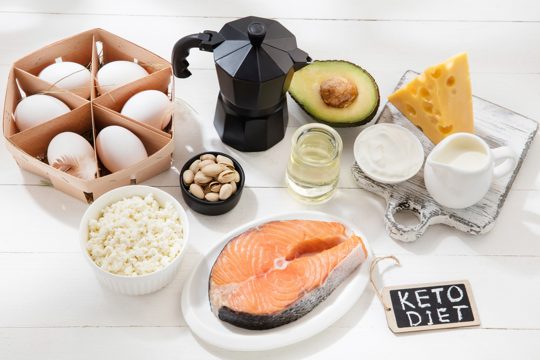
But the realm of healthy fats extends beyond olive oil. There's a whole world of nutritious oils out there, each with their own unique blend of fats, flavors, and health benefits.
Avocado oil, with its high smoke point and creamy flavor, is perfect for frying and sautéing. Flaxseed oil, rich in omega-3 fatty acids, can be drizzled over salads or used in smoothies. Coconut oil, boasting medium-chain triglycerides, is a fantastic option for baking. So, let's embrace fats as the nutritional powerhouses that they are, and explore the wonderful diversity of healthy cooking oils. By doing so, we can nourish our bodies, delight our taste buds, and transform our low-carb diet into a delicious journey of discovery.
The Role of Protein
Protein is important for maintaining muscle mass, which tends to decrease with age. Good sources of protein include meat, fish, eggs, and dairy products.
Protein, an essential nutrient, plays a quintessential role in maintaining muscle mass, and its importance increases as we age due to the natural decline in muscle mass. Consuming adequate protein helps in preserving and strengthening these muscles, promoting overall body strength and vitality, particularly during our golden years when these attributes may start to wane. Now, the question arises - where can we get this protein? A plethora of options are available to us. Meat, for instance, is a powerhouse of protein. Whether it's chicken, beef, or pork, meat provides a rich dose of protein that aids in muscle maintenance. Fish, on the other hand, is not only a great source of protein but also provides beneficial Omega-3 fatty acids.
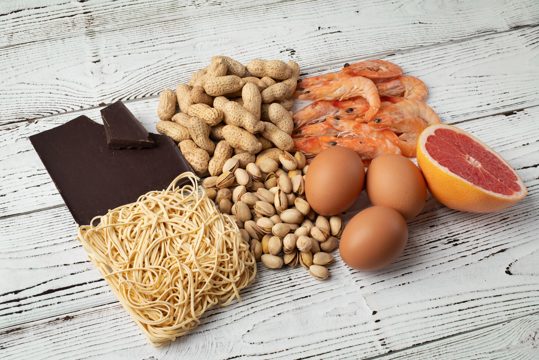
From salmon to tuna, the options are abundant and delicious!In addition to these, eggs are also an excellent, versatile source of protein. Whether boiled, scrambled, or incorporated into different recipes, eggs provide a readily available protein source.
Dairy products, such as milk, cheese, and yogurt, are not far behind. They provide a significant amount of protein, along with other nutrients like calcium, making them perfect for a balanced diet. So, incorporating these protein-rich foods into your daily diet can greatly assist in maintaining muscle mass as you age, contributing to a healthier, more active lifestyle. Remember, your diet shapes your health, and the inclusion of sufficient protein is an essential part of that.
Balancing Carbs
While carbs should be limited on a low carb diet, its important to still consume some, particularly before and after strength training, to help support muscle growth and recovery. While it's true that carbs should be monitored and moderated when following a low carb diet, it's equally crucial to remember that your body still requires a certain amount to function efficiently, especially prior to and following strength training.
These carbohydrates play a pivotal role in muscle growth and recovery, and neglecting them altogether can actually be counterproductive to your fitness goals. In the hours leading up to your strength training session, consider incorporating a moderate amount of carbs into your meal. This will provide you with the necessary energy to push through a grueling workout, allowing you to lift heavier weights and perform more repetitions. In essence, carbs fuel your muscles, preparing them for the strenuous activity ahead. Post-workout, your muscles are in a state of depletion, having used up their glycogen stores.
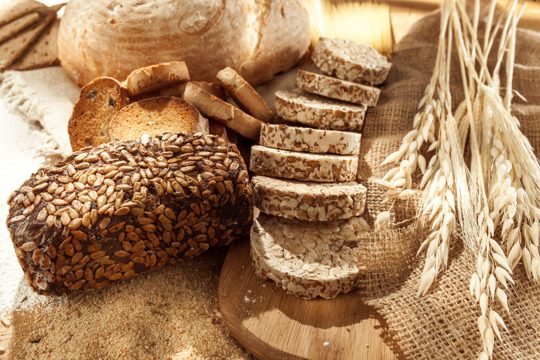
This is where carbs step in again, refilling these stores and aiding in muscle recovery. Consuming carbs after your workout can also prevent muscle soreness and fatigue, facilitating a quicker, smoother recovery.
So, while it's essential to limit carb intake on a low carb diet, remember not to eliminate them completely. Striking the right balance in carb consumption, specifically around your strength training regimen, will ensure optimal muscle growth and swift recovery. It's about finding that sweet spot - enough to fuel and replenish your muscles, but not so much that it hinders your low carb diet.
Ensuring Enough Fibre
Even on a low carb diet, its important to ensure you are getting enough fibre. Fibre can help support digestive health and can be found in foods like fruits, vegetables, and whole grains.
Even when you're meticulously following a low-carb diet, it's absolutely crucial not to overlook the significance of fibre in your daily consumption. Fibre, often neglected in dietary plans, plays a vital role in supporting your digestive health, contributing to a smoothly functioning system and even aiding in weight management. Including fibre in your diet isn't a Herculean task either. It's abundantly available in a wide array of foods that are not only nutritious but delicious as well. Fruits, for instance, are an excellent source of fibre. From apples to oranges, berries to bananas, they offer a delightful way to meet your fibre requirements while also satisfying your sweet tooth.
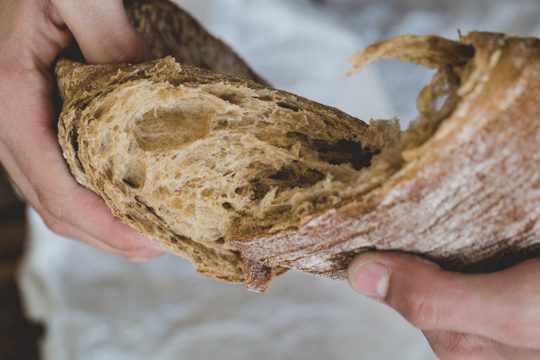
Vegetables, another rich source of fibre, can be incorporated into your meals in an endless number of ways. Whether you prefer them stir-fried, roasted, or raw in salads, they provide a healthy dose of fibre along with a spectrum of essential nutrients.
Whole grains are also a wonderful source of fibre. Foods like oats, brown rice, and whole grain bread can easily be a part of your meal plan while keeping your carb count in check. So, even while you're focused on maintaining a low-carb diet, remember to give fibre the attention it deserves. It's not just about cutting out carbohydrates; it's about creating a well-rounded, balanced diet that fuels your body in the best way possible. Remember, a healthy diet is a colourful, varied one, and fibre-rich foods definitely have their own important place on the plate.
Low Carb Products
There are numerous products available to support a low carb diet. These include Slice of Life Carb Wise Bread, Nuco Coconut Crunch Cereal – Cinnamon, and low carb, low calorie and sugar-free jam & fruit spreads.
Indeed, today's market teems with a plethora of products designed specifically to cater to a low-carb lifestyle, making your health journey not only manageable but also deliciously enjoyable. Among these offerings, you'll find products like the Slice of Life Carb Wise Bread. This is no ordinary bread; it's a heavenly, guilt-free treat that is impressively low in carbs, allowing you to savour your favourite sandwiches or morning toast without derailing your diet plan. Then there's the Nuco Coconut Crunch Cereal - Cinnamon variant, a breakfast game-changer.
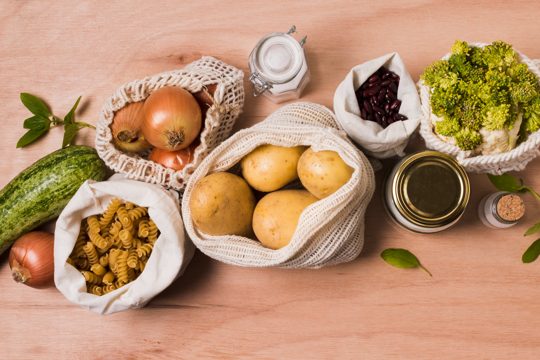
Imagine starting your day with the delightful crunch of this low-carb cereal, its sweet cinnamon flavour dancing on your tongue, and the satisfying knowledge that it's all aligned with your dietary goals. This isn't your typical sugar-laden cereal; it's a nourishing bowl of goodness that leaves you feeling satiated and energised for the day.
In addition, if you're someone who enjoys the sweet simplicity of a jam or fruit spread on your bread or even as a dessert topping, you'll be thrilled to discover that there are low-carb, low-calorie and sugar-free jams and fruit spreads available. These aren't just healthier alternatives; they're also bursting with natural fruit flavours that can make any meal feel like a special occasion. So, whether you're new to the low-carb world or a seasoned veteran, rest assured that there are countless products out there designed to bring variety, taste, and satisfaction to your diet while keeping your carb count in check.
Substitutes for High Carb Foods
Shirataki Noodles and Rice Substitutes can be a great way to enjoy traditional dishes without the high carb content. These are often made from konjac flour, which is low in carbs and high in fibre.
Shirataki Noodles and Rice Substitutes are not just a culinary secret; they are a dieter's best friend and a health-enthusiast's delight. They provide an enticing opportunity to savour your cherished traditional dishes without fretting over the high carbohydrate content that usually accompanies them. Their uniqueness lies in their composition. Crafted meticulously from konjac flour, a plant-based ingredient treasured for its health benefits, these noodles and rice substitutes are brimming with advantages. The konjac plant, a native of Asia, is celebrated for its low carb and high fibre content, making it a darling among those who are mindful of their diet.

When transformed into Shirataki Noodles and Rice Substitutes, the konjac flour retains these benefits, promising you a meal that is as nutritious as it is delicious. High in fibre, it aids digestion and helps you feel fuller for longer, effectively curbing those pesky hunger pangs between meals.
But the goodness of Shirataki Noodles and Rice Substitutes doesn't stop here. Low in calories, they give you the freedom to indulge without worrying about your waistline. They are also gluten-free and vegan-friendly, making them a versatile choice for a wide array of dietary preferences. So, whether you're watching your carb intake, trying to lose weight, or simply eager to experiment with healthier alternatives, these miraculous creations from konjac flour are sure to enrich your culinary adventures. Dive in, and discover a world of flavors untainted by guilt!.
Low Carb Flours & Meals
When it comes to baking or cooking, low carb flours and meals, such as almond or coconut flour, can be a great substitute for traditional wheat flour. One of the wonderful delights that come with culinary exploration is the discovery of healthier alternatives which are both nourishing and satisfying.
In the realm of baking or cooking, this often presents itself in the form of unique ingredients that significantly reduce our carb intake while still providing us with the textures and flavors we crave. For instance, low carb flours and meals, such as almond or coconut flour, have emerged as a phenomenal replacement for traditional wheat flour. These flours, made from finely ground almonds or dried, shredded coconut, are a delightful discovery for health-conscious cooks and bakers. They offer not only a lower carb count but also a wealth of nutrients not found in their wheat-based counterparts. Almond flour, for instance, is packed with protein and fiber, while coconut flour is a powerhouse of iron and healthy fats.
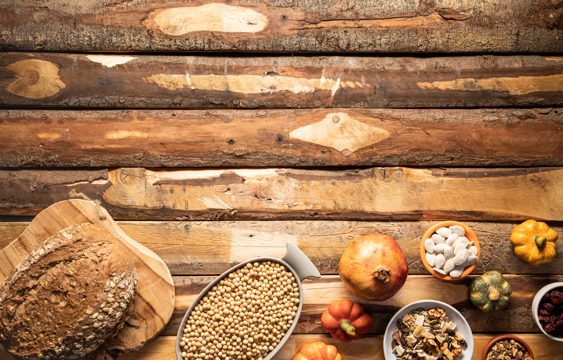
Moreover, they can bring a unique twist of flavor to your culinary creations. Almond flour can add a sweet, nutty flavor, while coconut flour brings a tropical flair to your dishes.
Therefore, replacing wheat flour with these alternatives is not just about reducing carbs, but also about exploring new, exciting flavors. So, whether you're on a low-carb diet, have dietary restrictions, or just want to experiment with new ingredients, almond and coconut flours offer an exciting, healthier alternative in your culinary journey. They're the perfect way to transform traditional recipes into guilt-free indulgences while adding a dash of creativity to your kitchen endeavors. Embrace these low-carb flours and meals and make your cooking and baking experiences more adventurous, healthier, and completely satisfying.
Natural Sweeteners
To satisfy sweet cravings, zero carb, zero calorie natural sweeteners like stevia and erythritol can be used. These sweeteners do not raise blood sugar levels the way regular sugar does.
When it comes to addressing those pesky sweet cravings that we all experience, one might feel limited in their choices, particularly if they are conscious of their carbohydrate and calorie intake. However, you'll be delighted to know that there are enticing alternatives available that can satisfy your sweet tooth without the guilt. Natural sweeteners like stevia and erythritol come to the rescue in such circumstances, offering zero carbs and zero calories, making them a fantastic choice for those who are watching their diet or trying to lose weight. What makes these sweeteners even more remarkable is their positive impact on blood sugar levels.

Unlike regular sugar, which can cause a rapid spike in blood glucose levels, stevia and erythritol are known for their negligible effect on blood glucose levels. This makes them a safer choice for people with diabetes or those at risk of developing the condition.
So, whether you're looking to sweeten your morning cup of coffee or add a dash of sweetness to your favorite homemade dessert, these natural sweeteners are the way to go. They allow you to enjoy the sweet things in life without the fear of disrupting your health goals. Try using stevia or erythritol next time your sweet cravings kick in, and you'll be amazed at how these zero carb, zero calorie sweeteners can transform your dietary habits for the better.
Low Carb Drinks
For beverage options, zero calorie, zero sugar sodas and teas can be a good choice. They can provide a sweet taste without adding any extra carbs to your diet.
When it comes to choosing your beverage, the plethora of options can be overwhelming. However, if you are looking to maintain or improve your health, zero-calorie, zero-sugar sodas and teas can be an excellent choice to consider. They offer a delightful balance between tantalizing your taste buds with a sweet sensation and supporting your health goals. What makes them even more appealing is that they deliver this sweet taste without adding any extra carbs to your diet, making them a perfect fit for those who are watching their carbohydrate intake or are on a low-carb diet. These beverages, infused with a variety of flavors, can turn your simple hydration ritual into an exciting, flavor-packed experience.
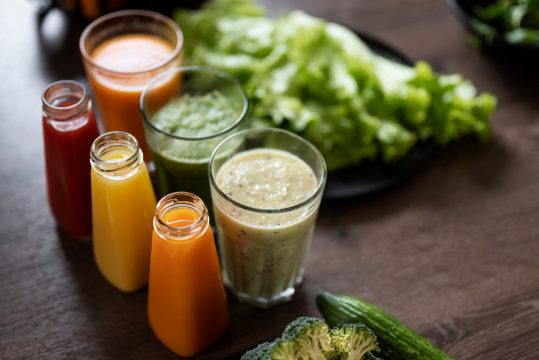
From the fizz and tang of soda to the soothing warmth of tea, you'll find yourself looking forward to these guilt-free refreshments. They also serve as a great way to curb your sugar cravings, offering a healthier alternative to sugary drinks, which can often lead to weight gain and other health problems.
Furthermore, they are widely available and come in many different varieties, making it easy to find one that perfectly suits your palate. So, whether you're enjoying a meal, need a quick pick-me-up, or simply want to quench your thirst, zero-calorie, zero-sugar sodas and teas can be a fantastic, health-conscious choice. They not only add a splash of flavor to your day but also support your wellness journey by keeping extra carbs and sugars at bay.
About us
Welcome to SeniorCaresHub! Welcome to our comprehensive senior care destination! We pride ourselves on being a trusted resource for all things related to caring for aging loved ones. We understand the unique needs and challenges that come with senior care, and our mission is to provide you with the information, resources, and support you need to confidently navigate this journey and help you provide the best possible care for your aging loved one.

